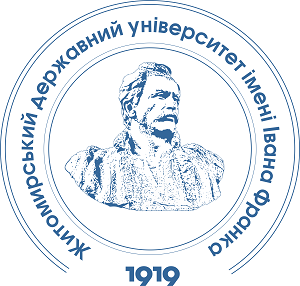BUSINESS COMMUNICATIONS AS A MOTIVATION FOR THE PROFESSIONAL ACTIVITIES OF HIGHER EDUCATION ACQUISITIONS
DOI:
https://doi.org/10.32782/psy-2023-2-7Keywords:
business communication, motivation, professional activity, students of higher educationAbstract
Motivation is one of the driving forces of human behavior. It promotes healthy competition and the development of social ties. During the long period of the development of psychology, scientists proposed various theories to find an explanation for the motivation of human behavior. Despite the obvious need to study this issue, empirical studies of motivation have been divided into different areas for a long time, which made it difficult to establish an integrative view of motivation. The theories of motivation proposed in educational psychology are unrelated to the motivational theories studied in social psychology or in organizational psychology. The system of motives of future managers determines their motivational orientation in the field of business communication, which determines the ideal method for interpersonal interaction with communication partners. The first motivational and value component of business communication is the culture of future managers.Business communication is a system of motives and values that guide the future specialist during business communication and mediates his perception and assessment of various professional situations, determining the choice of communication methods with partners. The article analyzes the motivational structure of the personality of students of full-time and extramural forms of education. As a result of the conducted research, it was established that the most pronounced type of values among education seekers is support for life support and social status. In the conditions of an educational institution, the motivation to master a profession is not sufficiently expressed, usually due to an ill-conceived choice of profession, misunderstanding at the initial stage of the nature of educational disciplines. In this case, it is possible to correct this situation in the course of training due to the optimization of the educational process, the introduction of innovative teaching methods, the improvement of the forms and methods of career guidance, which is conducted among school graduates and applicants, as well as the demonstration of the applied significance of the chosen specialty.
References
Альохіна Н. В. Дослідження мотивації навчання у вищому навчальному закладі. Проблеми загальної та педагогічної психології : збірник наукових праць Інституту психології ім. Г. С. Костюка НАПН України / за ред. С. Д. Максименка. Т. ХІІ. Ч. 6. Київ : 2010. С. 7–14.
Занюк С. С. Психологія мотивації : навч. посіб. Київ : Либідь, 2002. 304 с.
Кокун О. М. Оптимізація адаптаційних можливостей людини: психофізіологічний аспект забезпечення діяльності: монографія. Київ : Міленіум, 2004. 265 с.
Колчигіна А. В. Мотивація досягнення: теоретико-методологічний аналіз. Теорія і практика сучасної психології. 2019. № 1. С. 58–61.
Кочарян О. С., Фролова Є. В., Павленко В. М. Структура мотивації навчальної діяльності студентів : навчальний посібник. Харків, 2011. 40 с.
Сердюк Л. З. Чинники внутрішньої мотивації учіння студентів ВНЗ. Науковий вісник Чернівецького університету. Педагогіка та психологія. 2014. Випуск 679. С. 148–156.
Andrews T. C., Conaway E. P., Zhao J., Dolan E. L. Colleagues as change agents: How department networks and opinion leaders influence teaching at a single research university. CBE—Life Sciences Education. 2016. Vol. 15(2). https://doi.org/10.1187/cbe.15-08-0170
Asefer A., Abidin Z. Soft Skills And Graduates Employability In The 21st Century From Employers’ Perspectives: A Review Of Literature. International Journal of Infrastructure Research and Management. 2021. Vol. 9(2). Р. 44–59.
Brooks C., Young S. Are choice-making opportunities needed in the classroom? Using self-determination theory to consider student motivation and learner empowerment. International Journal of Teaching and Learning in Higher Education. 2011. Р. 48–59.
Dweck C. Mindset: The new psychology of success. New York : Random House. 2006. 320 р.
Fixsen D. L., Naoom S. F., Blase K. A., Friedman R. M., Wallace F. Implementation research: A synthesis of the literature (Louis de la Parte Florida Mental Health Institute Publication 231) Tampa : University of South Florida, National Implementation Research Network, 2005. 119 р.
Gallos M. R., Berg E. V. D., Treagust D. F. The effect of integrated course and faculty development: Experiences of a university chemistry department in the Philippines. International Journal of Science Education. 2005. Р. 985–1006
Graham S. Theories and Principles of Motivation / D.C. Berliner, R. C. Calfee (eds). Handbook of Educational Psychology. New York : Macmillan, 1996. P. 63–84.
Guay F., Ratelle C. F., Chanal, J. Optimal learning in optimal contexts: The role of self-determination in education. Canadian Psychology. 2008. Р. 233–240. doi: 10.1037/a0012758.
Krockover G. H., Shepardson D. P., Adams P. E., Eichinger D., Nakhleh M. Reforming and assessing undergraduate science instruction using collaborative action-based research teams. School Science and Mathematics. 2002. Р. 266–284.
Kuhl J. Volitional Aspects of Achievement Motivation and Learned Helplessness: Toward a Comprehensive Theory of Action Control. In B. A. Maher (Ed.), Progress in Experimental Personality Research (Vol. 13, pp. 99–171). New York : Academic Press. 1984.
Maslow A. Motivation and Personality. New York : Harper, 1996. 369 р.
Mook D. G. Motivation: The Organization of Action. New York : W.W. Norton & Company, 1995. 656 р.
Niemiec C. P., Ryan R. M. Autonomy, Competence, and Relatedness in the Classroom: Applying Self-Determination Theory to Educational Practice. Theory and Research in Education. 2009. Р. 133–144. http://dx. doi.org/10.1177/1477878509104318.
Porter A. L., Roessner J. D., Oliver S., Johnson D. A systems model of innovation processes in university STEM education. Journal of Engineering Education. 2006. Р. 13–24.
Rothland M. Warum entscheiden sich Studierende für den Lehrerberuf? Berufswahlmotive und berufsbezogene. Überzeugungen von Lehramtsstudierenden. In E. Terhart, H. Bennewitz, M. Rothland (Eds.), Handbuch der Forschung zum Lehrerberuf. 2014 Р. 349–385.
Rushin J. W., De Saix J., Lumsden A., Streubel D. P., Summers G., Bernson C. Graduate teaching assistant training: A basis for improvement of college biology teaching & faculty development. American Biology Teacher. 1997. Р. 86–90.
Ryan R. M., Deci E. L. Intrinsic and extrinsic motivations: Classic definition and new directions. Contemporary Educational Psychology. 2000. Р. 54–67. doi: 10.1006/ceps.1999.1020
Weber M. R., Lee J., Crawford A. A suggested best practices for enhancing performance of soft skills with entrylevel hospitality managers. Anatolia. 2020. Vol. 31(1). P. 76–87. https://doi.org/10.1080/13032917.2019.1703770
Weiss T. H., Feldman A., Pedevillano D. E., Copobianco B. The implications of culture and identity: A professor’s engagement with a reform collaborative. 2003. Р. 333–356.
Kok A., Ramautar J. R. , De Ruiter M. B. , Band G. P. H., Ridderinkhof K. R. ERP components associated with successful and unsuccessful stopping in a stop signal task. Psychophysiology. 2004. Vol. 41. Р. 9–20.
Waller D. A., Hazeltine E., Wessel J. R. (). Common neural rocesses during action stopping and infrequent stimulus detection: The frontocentral P3 as an index of generic motor inhibition. International Journal of Psychophysiology. 2019. 10.1016/j.ijpsycho.2019.01.004.






